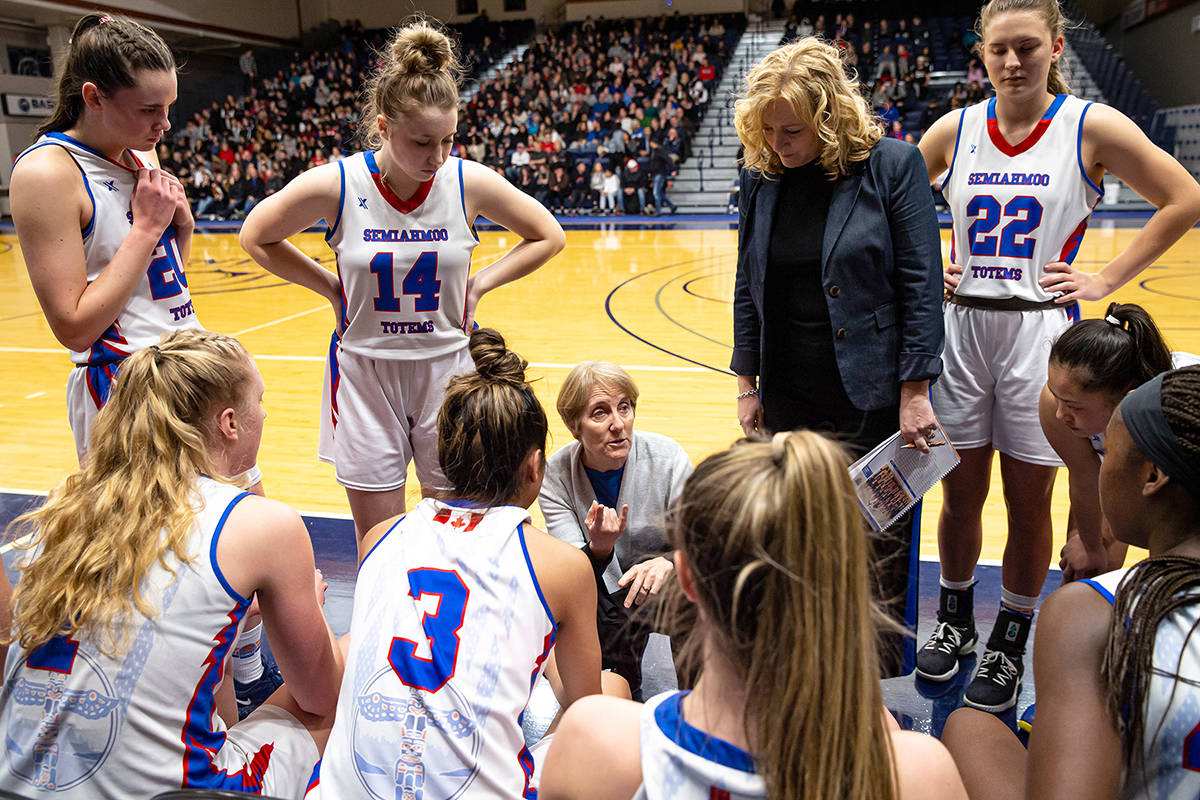

by Allison McNeill (Canadian National Team Coach 2012 Olympics, 2006 & 2010 World Championship, University Coach – 20 years -SFU & Oregon-, Head Coach of the Semiahmoo High School Totems; Geoff Gowan Award. Member of the BC Sports Hall of Fame.). She talks about the importance of grit and a growth mindset in players.
I sincerely believe the guidance and modeling in my formative years by my parents and witnessing up close and in person, the work ethic of Bev Smith (my high school and university teammate) helped me realize very early that it is not talent that wins the day, but instead the ability to press on.
Bev played 12 years on the Canadian National Team (2 Olympic Games and 2 World Championships), and she was part of the All-World Team at the 1979 World Championships. She also played 12 years of professional basketball in Italy.
She is Canada’s best-ever female basketball player. Bev is the gold standard, and the benchmark for me when evaluating players!
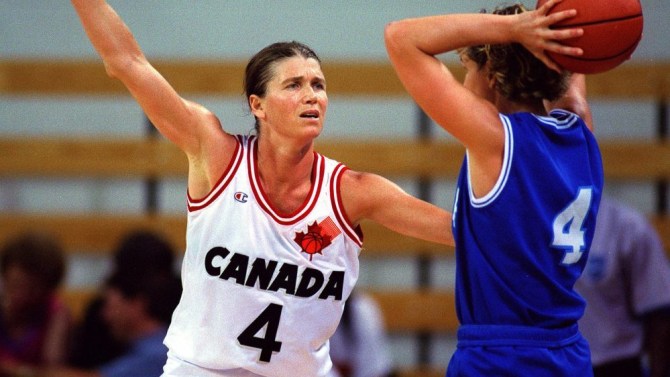
I saw daily her love and passion for the game. She had an incredible ability to push herself to train, to improve, to work with ethic, resiliency, toughness, ultra-competitive spirit, will to win, perseverance in the face of adversity, and courage.
These were the qualities that differentiated Bev from other top players in the world. The importance of GRIT and a growth mindset was very present in her
They preach that the difference in performance comes down to the intangibles
Allison McNeill
Coaches need to constantly impress their athletes with the effort, persistence, and resilience required to succeed. If our athletes keep hearing how talented, gifted and incredible they are, why would they need to work hard?
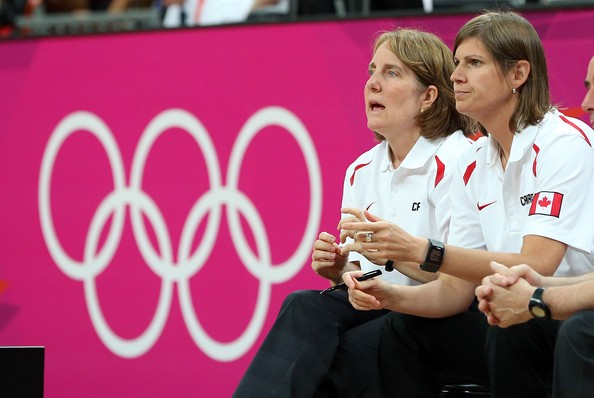
People claim too often that, at the highest levels of competition, the physical ability between athletes is relatively equal. They preach that the difference in performance comes down to the intangibles. The qualities that Bev Smith and all great performers display daily the mental side of the game.
Having talent does not automatically make you gritty.
Allison McNeill
So how can we build the mental game in our athletes? And how can our communication help develop those intangible qualities? We need to remember the importance of GRIT and a growth mindset.
In her book “Grit. The Power of Passion and Perseverance“, Dr. Duckworth defines grit as passion and sustained persistence applied toward long-term achievement. It combines resilience, ambition, and self-control in pursuing goals that take months, years, or even decades to achieve.
Grit is having stamina. Grit is sticking with your future goals, day in and day out. Duckworth has found that grit is a significant predictor of success.
Teaching a growth mindset creates motivation and productivity in every walk of life.
Allison McNeill
As coaches, we need to look at grit more when we evaluate athletes, and we need to teach it to young athletes.
There are always those athletes that do not pass the eye test to some people; they are not that strong, that fast, not very tall, etc. But they have those darn intangibles that can translate into success if only coaches and administrators will let them!
Having talent does not automatically make you gritty. So, the question is, how do we build GRIT in our young athletes? Well, this is where we need to look at Dr. Dweck’s research on mindset.
Dweck, in her book “Mindset. The new psychology of success” talks about having a fixed mindset, or growth mindset. Those with a fixed mindset, consider that their more basic qualities, such as intelligence, or talent, are just fixed traits. They spend their time trying to show their intelligence or talent instead of developing them. They believe that their talent alone creates their success – without effort.
People with a growth mindset believe that basic abilities can be developed through dedication and hard work. Talent is just the starting point. This view creates a love of learning and resilience that is essential for great accomplishment.
Virtually all successful people have had these qualities. Teaching a growth mindset creates motivation and productivity in every walk of life.
To expand on the concept of developing a growth mindset, we (coaches, parents, and athletes) in the sports world often get distracted by talent. Unfortunately, there is a belief that, because an athlete is talented and has natural abilities, it will automatically result in the athlete giving effort, which in turn leads to achievement. However, the problem with this belief is that highly talented kids, compared to their peers, seem to have problems learning the importance of effort and hard work. Initially, success often comes easily to them. Just putting in some work, and they succeed. Unfortunately, the message received is: “This is easy. I’m a natural.”
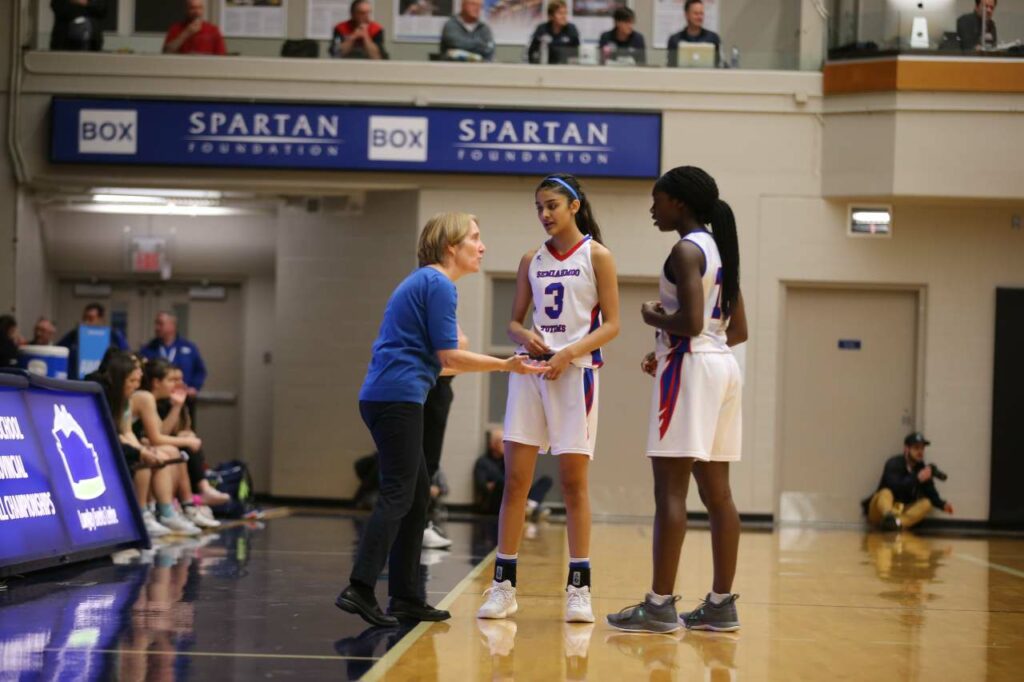
This idea is also reinforced by coaches, parents, and others, saying things like “Wow, you are so talented!”, or “You are so good, just a natural athlete”. When people use this type of praise, they believe, they are positive. However, it instead fuels the fixed mindset athlete to think that she does not need to work, that their natural abilities will lead them to success. However, other athletes who are also talented, but possess a growth mindset, eventually catch up and pass the fixed mindset ones. It often happens when they move to the next level of play, for example, moving from high school to university or from Junior National Teams to Senior National Teams.
Many of these fixed mindset athletes become frustrated, never reach their potential and even step away from the sport. Their thoughts revolve around ideas like: “I should not have to work that hard. I should naturally excel and win. I always have.”
We can correct this if we teach that effort and hard work matter.
The repeated message throughout the sports environment must be the celebration of improvement and recognition of effort. Instead of talking about talent, we should recognize passion and perseverance.
In my coaching career, I have seen coaches making selections based solely on the physical gifts an athlete has. I listen to them talking about talent, physical treats, size, wingspan, vertical jump, etc. Got it! But, what about those darn intangibles that can translate into winning basketball games (if only the coaches will let them)?
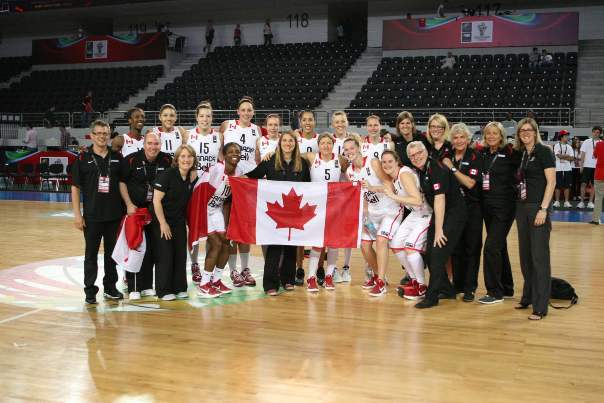
It breaks my heart that we are not also, in the same conversation, talking about perseverance, passion, dedication, work ethic, courage, conscientiousness, toughness, resilience, competitive spirit, etc.
“To spot a winner, you must look first for those who radiate a persistent passion to consistently overcome whatever life throws at them. Talent always comes a poor second to that.”
Frank W. Dick
I consider myself extremely lucky to have had people in my life who made sure that I was taught and saw examples of both grit and a growth mindset. My parents, and my coaches, praised my work ethic, my persistence, my creativity, and my grit!
And on the other side, I can tell you that I am also disappointed and frustrated that I hear coaches/evaluators/administrators rave about young players. I have listened to it all. “Best grade 4 I have ever seen”. “She is better than…”. “Her talent could make her one of the best”. “She is so gifted”.
We need to stop telling athletes how talented, gifted, and great they are! Coaches need to start praising how hard they are working, how committed to getting better they are, or when persisting if things get tough, show grit, or become the best they can be!
All of us also need to focus on learning/process goals, as opposed to performance goals. If it is only about winning, why working hard. Why should I train if I can win without working and training hard? Especially at the younger ages.
I love this quote by Frank Dick, former British Athletics Director of Coaching and motivational speaker: “To spot a winner, you must look first for those who radiate a persistent passion to consistently overcome whatever life throws at them. Talent always comes a poor second to that.”
So, my question is: Are we as coaches sabotaging the success of our athletes with our communication?.
Twitter: @AllisonMcNeill
Thank you coach McNeill for your article about the importance of grit and a growth mindset and we hope to see you soon!
Recommended training: Scout Procoach
Recommended post: Priorities in the development of basketball players
Artículos relacionados
El entrenamiento del 1×1 en baloncesto (uno contra uno) es fundamental para adquirir dominio de una de las situaciones más
La natación es una de las disciplinas más desafiantes del triatlón. Para muchos, representa no solo una barrera física, sino
¿Alguna vez te has preguntado cómo sería escapar del ajetreo de la ciudad, respirar aire fresco y correr rodeado de
